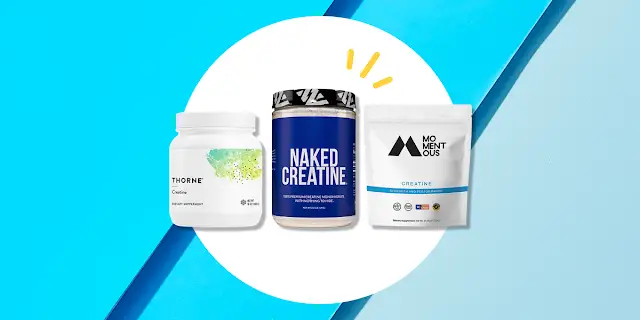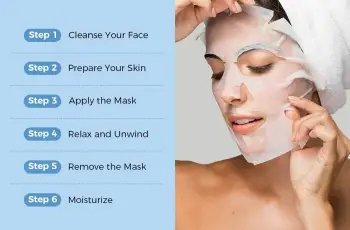
Which ingredients help fight acne?
Ingredients that help fight acne can work in a variety of ways to keep your skin blemish-free. There are many products on the market that fight all forms of acne, from cleansers, gels, foams, leave-on products, masks, serums – the list is endless, but which one is the best? What ingredients to look out for? Let’s find out more.
The best ingredients for acne-prone skin?
When it comes to over-the-counter products, there are several ways to treat and prevent acne. Some kill blemish-causing bacteria by clogging pores, while others remove excess oil from the skin and support skin cell turnover by increasing the rate at which dead skin cell layers are removed. Whichever product you choose, it’s the active ingredients that bring the results, and we’ll explore their benefits in more detail.
Salicylic Acid
Salicylic acid is a beta-hydroxy acid (BHA) that penetrates the lower layers of the skin to remove dirt, bacteria, and excess sebum from pores, which, if not removed, can lead to inflammation such as pimples or blackheads. You can find salicylic acid in skin care products like cleansers, serums, essential oils, and moisturizers, all of which must contain an active amount of salicylic acid to achieve the desired blemish-removing effects. You can check the effectiveness of the ingredients in a product by carefully looking at the ingredient list on the packaging. If the acid is below number six on the list, the percentage is too low to have an effect on the skin or acne.
Benzoyl Peroxide
This ingredient helps kill any bacteria that cause acne and other skin blemishes, removes excess oil that can clog pores, and removes dead skin cells that can cause acne and blemishes. You can find benzoyl peroxide in concentrations of 2.5% to 10% in over-the-counter products, and it works best when used regularly. Some side effects to watch out for include redness, flaking, itching, and dry patches on the skin.
Alpha Hydroxy Acids
These acids, also known as AHAs, are a large family of chemical exfoliants that are commonly used in products like cleansers, toners, serums, and moisturizers. They work on the outer layer of the skin, removing dead skin cells by loosening the bonds that hold them together, making it easier for bright, vibrant new skin cells to emerge. If you want to get rid of acne, the best AHAs to use on your skin are glycolic acid and lactic acid, both of which are suitable for all skin types and can cleanse the skin without causing over-drying.
There are also prescription treatments and medications available to help treat severe acne, as detailed on the NHS website, including the following:
Topical retinoids
Topical antibiotics
Azelaic acid
Antibiotic tablets
For women, combined oral contraceptives
If you have concerns about your acne or its treatment, speaking to your primary care doctor or dermatologist can give you a clearer idea of the next steps to treat your blemishes.
The best natural ingredients for treating acne?
Some cases of acne are often linked to lifestyle and breakouts. Your first step when treating problem skin is to strip your skincare routine down to its bare essentials and take some time to review your diet. To improve your skin and treat acne, you can try the following:
Reduce dairy products like cheese and milk as they can have a significant impact on the clarity of your skin. Try avoiding dairy for two weeks and notice how your skin reacts and feels. This will give you a good indication of your diet and how it affects your skin.
Regular exercise also helps keep your skin clear as it promotes healthy blood circulation, which nourishes the skin and helps prevent acne and previously caused damage. Exercise also reduces stress and anxiety, both of which are culprits in causing acne.
Exfoliating regularly can keep your skin healthy and fight pimples and blackheads. Depending on your skin type, exfoliate 2-3 times a week to remove dead skin cells and bacterial buildup, which is the main cause of acne.
There are some other great natural ingredients that can treat acne. You can use them in their original form or mix them into products that help treat and prevent breakouts.
Witch Hazel
Witch hazel is derived from the bark of the witch hazel tree and contains tannins, which have powerful antibacterial and anti-inflammatory properties. While there is no scientific evidence that it is an ingredient that can specifically treat acne, there are many studies that show that witch hazel is less effective when applied to inflamed areas and breakouts caused by the ingredient fighting bacteria. Reduce inflammation and support skin healing.
Tea Tree Oil
Derived from the leaves of the Australian Melaleuca alternifolia, this powerful extract has become an acne-fighting agent due to its impressive ability to reduce skin inflammation and fight bacteria. Many studies have proven that adding 5% tea tree oil to a formula can effectively treat acne without causing excessive drying or irritation compared to other harsh ingredients. It is always recommended to dilute tea tree oil before using it on the skin. Mix 1 part tea tree oil to 9 parts water to avoid skin reactions.
Which acids are good for acne?
Acids are the perfect addition to your skincare routine if you are looking to treat problem skin. Both alpha and beta hydroxy acids can help skin look and feel its best and can give your complexion a radiant effect when used correctly. Here are some facial acids that are good for your skin and can easily treat acne:
Glycolic Acid – This is a great acid to start with if you haven’t used it before. It’s effective at removing dead skin cells but gentle enough not to cause skin irritation or redness.Glycolic acid is the most popular acid because its smaller molecular size allows it to penetrate deeper into the skin and help address a range of issues, from boosting collagen production to reducing fine lines and wrinkles to preventing the appearance of dead skin cells that often lead to breakouts.
Salicylic acid – As the only BHA available, salicylic acid has a large following because it penetrates deeper into the skin and pores than other AHAs, clearing out bacteria, dirt, excess oil, and debris. It’s perfect for people with large pores because it can help reduce the appearance of pores. It’s also a good idea to do a patch test before using this acid because its strength can cause irritation if overused or introduced to the skin incorrectly.
Lactic acid – The great thing about lactic acid is that it has the same effects as glycolic acid but with moisturizing properties, making it an acid that benefits all skin types that suffer from some form of acne. Because lactic acid has a great smoothing effect on the skin, it’s often used in personal care products and is great for treating acne on areas of the body like the back and chest.
If you want to learn more about AHAs and BHAs, you can read our blog post about their benefits.
These are the main ingredients that will help you treat acne most effectively. To keep your skin looking healthy, clear, and smooth, you need to tailor your skin care routine to your skin’s needs. If you overuse these acids or exfoliate too often, you deprive your skin of the necessary water and oils it needs to maintain its skin balance and protective barrier. Always make sure to moisturize your skin with a serum rich in hyaluronic acid and vitamin C, and wear a sunscreen of at least SPF 30 every day to prevent sun damage.


